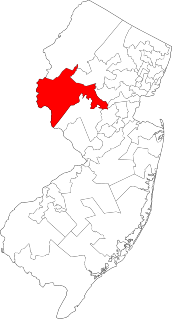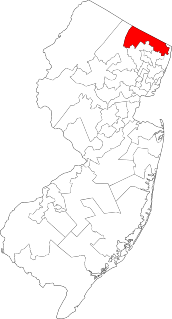Linda R. Greenstein is an American Democratic Party politician who represents the 14th legislative district in the New Jersey Senate. She is the first woman to hold the Mercer-Middlesex regional State Senate district since Anne Clark Martindell, who filled the seat from 1974 to 1977. She previously served in the General Assembly from 2000 to 2010.

Linda L. Upmeyer is the Iowa State Representative from the 54th District. She has served in the Iowa House of Representatives since 2003 and is the current Speaker of the Iowa House of Representatives. She is the first female Speaker in Iowa's history. She received her BSN from the University of Iowa and her MSN from Drake University. On August 19, 2015 was elected by the members of the Iowa House of Representatives Republican majority to serve as the Speaker of the House. Upmeyer's father, Del Stromer served as Speaker from 1981–82.

Patrick Grassley is the Iowa State Representative from the 50th District. He has served in the Iowa House of Representatives since January 2007. He is the grandson of Senator Chuck Grassley.

The 2006 Iowa Senate election was held on November 7, 2006. The Senate seats for the twenty-five odd-numbered districts were up for election. Senate terms are staggered such that half the membership is elected every two years. Senators serve four-year terms. Prior to the election, the Senate was evenly divided between Republicans and Democrats. Following the election, the Democrats were in the majority - this marked the first time in 42 years that the Democrats had controlled both branches of the Iowa General Assembly and the Governor's Office.

There were two sets of 2006 Iowa House of Representatives elections. The first, the general election, was held on November 7. The second, a special election for District 52, was held on December 12. The representatives-elect from both sets of elections were inaugurated on January 3, 2007. The Iowa House, like the United States House of Representatives, is up for re-election in its entirety every two years. Prior to the elections, the Republicans were in the majority; following inauguration, the Democrats were in the majority – this marked the first time in 42 years that the Democrats had controlled both branches of the Iowa General Assembly and the Governor's Office at the same time.

The 2008 Iowa Senate election were held on November 4, 2008. The Senate seats for the twenty-five even-numbered districts were up for election. Senate terms are staggered such that half the membership is elected every two years, with each Senators serving a four-year term. Prior to the election, the Democrats were in the majority - marking the first time in 42 years that the Democrats had controlled both branches of the Iowa General Assembly and the Governor's Office. They expanded this majority by two seats in the 2008 elections.

Jason M. Schultz is the Iowa State Senator from the 9th District. A Republican, he served in the Iowa House of Representatives from 2009 to 2015. He lives in Schleswig, Crawford County.

New Jersey's 7th Legislative District is one of 40 in the New Jersey Legislature, covering the Burlington County municipalities of Beverly City, Bordentown City, Bordentown Township, Burlington City, Burlington Township, Cinnaminson Township, Delanco Township, Delran Township, Edgewater Park Township, Fieldsboro Borough, Florence Township, Moorestown Township, Mount Laurel Township, Palmyra Borough, Riverside Township, Riverton Borough and Willingboro Township as of the 2011 apportionment.

New Jersey's 15th Legislative District is one of 40 in the New Jersey Legislature, covering the Hunterdon County municipalities of East Amwell Township, Lambertville City and West Amwell Township; and the Mercer County municipalities of Ewing Township, Hopewell Borough, Hopewell Township, Lawrence Township, Pennington Borough, Trenton City and West Windsor Township.

New Jersey's 19th Legislative District is one of 40 in the New Jersey Legislature. As of the 2011 apportionment, the district includes the Middlesex County municipalities of Carteret Borough, Perth Amboy City, Sayreville Borough, South Amboy City and Woodbridge Township.

New Jersey's 20th Legislative District is one of 40 in the New Jersey Legislature. As of the 2011 apportionment, the district includes the Union County municipalities of Elizabeth City, Hillside Township, Roselle Borough and Union Township.

New Jersey's 23rd Legislative District is one of 40 in the New Jersey Legislature. As of the 2011 apportionment, the district includes the Hunterdon County municipalities of Alexandria Township, Bethlehem Township, Bloomsbury Borough, Califon Borough, Clinton Town, Clinton Township, Franklin Township, Frenchtown Borough, Glen Gardner Borough, Hampton Borough, High Bridge Borough, Holland Township, Kingwood Township, Lebanon Borough, Lebanon Township, Milford Borough, Tewksbury Township and Union Township, the Somerset County municipalities of Bedminster Township, Bound Brook Borough, Bridgewater Township, Peapack-Gladstone Borough, Raritan Borough and South Bound Brook Borough, and the Warren County municipalities of Alpha Borough, Franklin Township, Greenwich Township, Hackettstown Town, Harmony Township, Lopatcong Township, Mansfield Township, Phillipsburg Town, Pohatcong Township, Washington Borough and Washington Township.

New Jersey's 25th Legislative District is one of 40 in the New Jersey Legislature. As of the 2011 apportionment, the district includes the Morris County municipalities of Boonton Town, Boonton Township, Chester Borough, Chester Township, Denville Township, Dover Town, Mendham Borough, Mendham Township, Mine Hill Township, Morris Township, Morristown Town, Mount Arlington Borough, Mountain Lakes Borough, Netcong Borough, Randolph Township, Rockaway Borough, Roxbury Township, Victory Gardens Borough, Washington Township and Wharton Borough; and the Somerset County municipality of Bernardsville Borough.

New Jersey's 27th Legislative District is one of 40 in the New Jersey Legislature. As of the 2011 apportionment, the district includes the Essex and Morris County municipalities of Caldwell Borough, Chatham Township, East Hanover Township, Essex Fells Borough, Florham Park Borough, Hanover Township, Harding Township, Livingston Township, Madison Borough, Maplewood Township, Millburn Township, Roseland Borough, South Orange Village Township, and West Orange Township.

New Jersey's 39th Legislative District is one of 40 in the state, including portions of Bergen County and Passaic County. Included are the Bergen County municipalities of Closter Borough, Demarest Borough, Dumont Borough, Emerson Borough, Harrington Park Borough, Haworth Borough, Hillsdale Borough, Mahwah Township, Montvale Borough, Norwood Borough, Oakland Borough, Old Tappan Borough, Park Ridge Borough, Ramsey Borough, River Vale Township, Saddle River Borough, Upper Saddle River Borough, Washington Township, Westwood Borough, and Woodcliff Lake Borough; and the Passaic County municipalities of Bloomingdale Borough, Ringwood Borough, and Wanaque Borough. As of the 2010 United States Census, the pre-2011 district had a population of 217,041.
The United States Senate elections of 1860 and 1861 were elections corresponding with Abraham Lincoln's election to the presidency. The nascent Republican Party increased their Senate seats in the general elections, and after southern Democrats withdrew to join the Confederacy, Republicans gained control of the United States Senate. To establish a quorum with fewer members, a lower total seat number was taken into account.

The 2016 Iowa Senate election was held on November 8, 2016. The Senate seats for the twenty-five even-numbered districts were up for election. Senate terms are staggered such that half the membership is elected every two years, with each Senators serving a four-year term. Prior to the election, the Democrats were in the majority.














